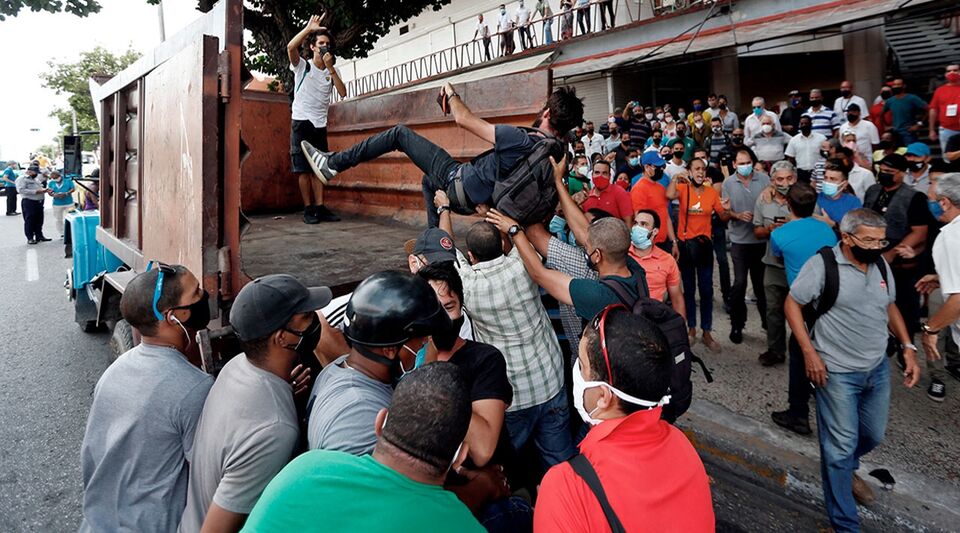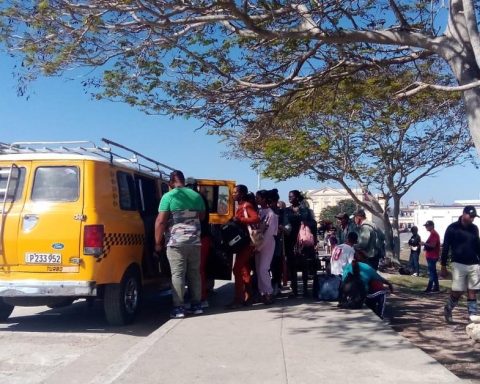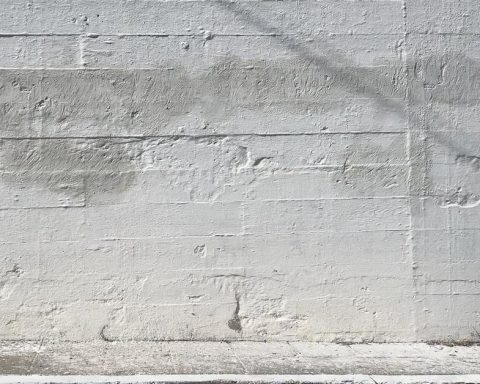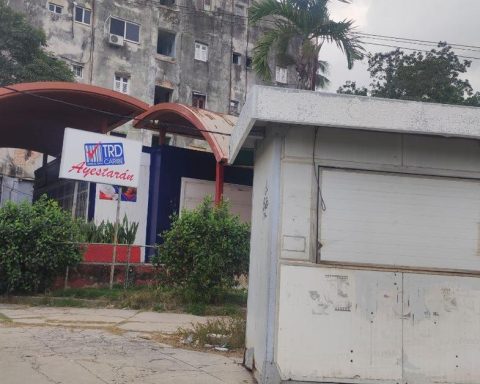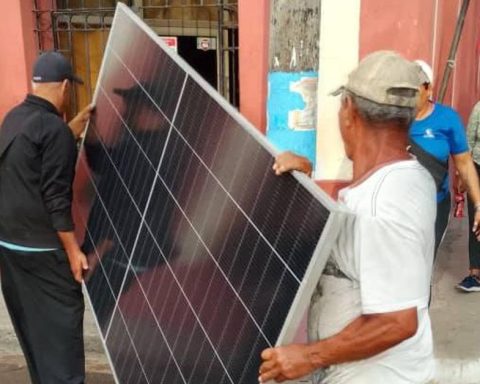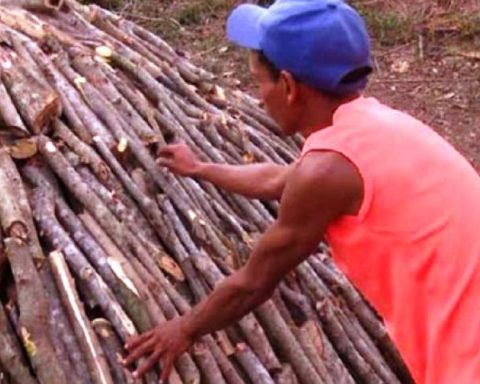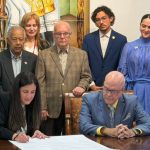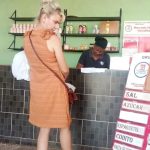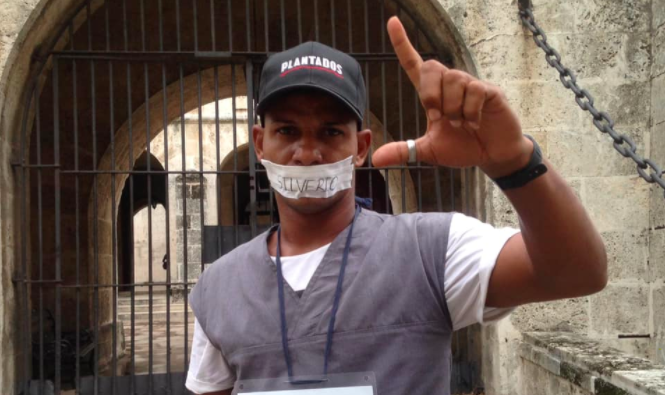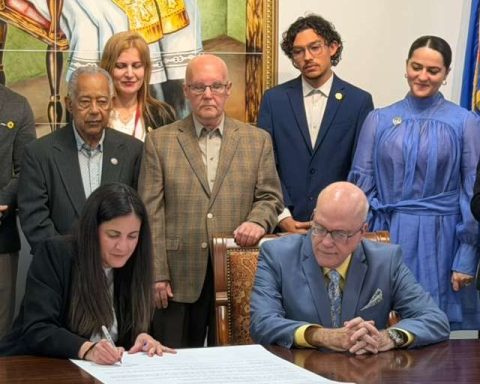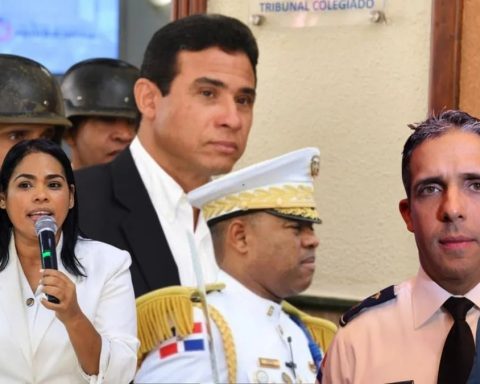Laritza Diversent, executive director of the Cubalex organization, considered this Thursday unlikely that anti-government demonstrations will take place in Cuba in the short term, such as those of July 11, 2021, given that the Cuban State “has increased its tools of social and physical control.” since then. “They are specialists in the inhibitory effect,” she said.
The lawyer participated yesterday in the presentation of a report by Cubalex and Justicia 11J, A year without justice: patterns of state violence against 11J protesterswhich highlights that after the 11J protests there were at least 1,484 documented arrests, of which 1,297 have been verified through testimonies or documents from the Prosecutor’s Office and the Cuban courts.
According to the document, so far a total of 701 people, aged between 12 and 68, are still detained in Cuban prisons for 11J
According to the document, so far a total of 701 people, aged between 12 and 68, are still detained in Cuban prisons due to 11J.
The activist said that many relatives of those detained during the peaceful protests a year ago, which arose spontaneously due to the economic crisis on the island and the official response to the covid pandemic, now prefer to remain silent after being ” harassed” by Cuban security forces.
His opinion contrasts with that of the Cuban Conflict Observatory (OCC), which considered in a report published Tuesday that the island could “be the scene of short-term rebellions of magnitude.” Diversent points out that on July 11 the Government “will take more policemen out into the streets” and believes that, if there were to be any protest, “violence” could occur on both sides.
He also alluded to the new Cuban criminal code that increases penalties and sanctions for those who “exercise their right to dissent,” in addition to criminalizing expressions of protest published on the Internet, for which the Cuban state has monitoring mechanisms.
All this makes it unlikely that next July 11, the date on which the Assembly of the Cuban Resistance, which includes groups from inside and outside of Cuba, has called for a series of activities, another large mass protest will take place in Cuba.
The activities scheduled in Florida are varied and respond to the support and solidarity with the protesters in Cuba that was reflected a year ago in the slogan “if Cuba is on the street, Miami too.”
The activities scheduled in Florida are varied and respond to the support and solidarity with the protesters in Cuba that was reflected a year ago in the slogan “if Cuba is on the street, Miami too”
The exiles plan to commemorate the first anniversary of the “Day of National Resistance”, as various organizations of Cubans in the diaspora have baptized it.
The Assembly of the Cuban Resistance asked Miamians this Thursday to make a great display of Cuban flags around the city next Monday to honor “the brave men, women and children” who demonstrated a year ago.
He also reminded Americans that they can be honored every day by not doing tourism in Cuba, promoting the cause of freedom and supporting the initiative of a “national strike” on the island.
On July 11, MAR for Cuba called for participation in the recitation of a rosary for Cuba in the hermitage dedicated in Miami to the Virgen de la Caridad del Cobre. An artistic, poetic and musical event is planned for later at the Museum of the Cuban Diaspora, with the participation of artists from the San Isidro Movement (MSI).
In addition to the event at the museum, entitled When rebellion is an act of courageoutside the famous Versailles restaurant in Miami, a concentration and a “ performance in support of the freedom of the Cuban people” by the ProActivo collective.
The commemorations will not be only in Miami. The page oncejota.com shows the list of events called by Cuban exiles to commemorate the first anniversary of “a historic day” in more than thirty cities outside of Cuba, including Miami, both in Europe and in North and South America.
For 11J, says the report presented in Miami, 622 people have been tried, accused mostly of public disorder, contempt, attack and sedition, among other crimes.
The document also reports at least 36 detainees suffering from chronic illnesses (epilepsy, cancer, hypertension, among others), physical or mental disabilities, or receiving psychiatric treatment. Of these, 26 have been tried and sentenced to prison terms of up to 22 years.
Diversent said that they have had information of cases of suicide attempts inside the prisons, where in addition to being under “deplorable” conditions, detainees are subjected to harassment and torture.
Diversent said that they have had information of cases of attempted suicide inside prisons, where in addition to being under “deplorable” conditions, detainees are subjected to harassment and torture.
Alessandra Pinna, director of programs for Latin America and the Caribbean of the organization Freedom House, one of the coordinators of the teleconference, called #SOSCuba: A Year Without Justicewarned that the increase in “arbitrary arrests” after 11J may have exceeded the prison infrastructure on the island.
For this reason, he insisted that the Cuban authorities must attend to the demand of the international community so that independent organizations can visit the prisons in order to “monitor the situation.”
Pinna asserted in a statement to Efe that, after the marches a year ago, there is now “a pattern of generalized repression” on the island and many activists have been arrested or have had to go into exile.
“The political cost is zero,” lamented the director of Freedom House, recalling that Cuba is currently one of the 47 members of the United Nations Human Rights Council. “We want to hear the criticism of democracies louder,” she claimed.
The Cuban Attorney General’s Office has issued 76 final sentences against 381 people for the 11J protests, but the relatives of those convicted and NGOs have criticized these actions, alleging lack of guarantees, fabrication of evidence and high sentences.
“There is a double standard compared to Venezuela and Nicaragua, which are publicly called dictatorships,” Diversent criticized.
Pinna pointed out that these trials have been behind closed doors and without due process, including in the cases of minors under 16 years of age, in addition to the fact that some diplomatic missions were not able to observe the judicial processes as they had requested. Given all this, the reaction of the international community as a whole has not been as expected, he said.
“There is a double standard compared to Venezuela and Nicaragua, which are publicly called dictatorships,” criticized Diversent, who lamented that the same reactions and qualifications were not produced when, for example, the new Cuban criminal code was approved.
He referred to the “lukewarm role” of the Organization of American States (OAS), which after the approval of the new Penal Code in Cuba has not issued a resolution condemning the human rights situation in Cuba and added that this organization does not The same standard applies with Cuba as with Venezuela and Nicaragua.
“On 11J, the Cuban people’s demand for more food, more medicine, a better response to covid was clear, but we understand that this is due to the lack of freedom and the absence of accountability,” he said.
The teleconference also included the participation of Gerardo Berthin, vice president of international programs at Freedom House; Erika Guevara Rosas, director of Americas at Amnesty International; Juan Pappier, researcher at Human Rights Watch; and Salomé García Bacallao, coordinator and co-founder of Justicia 11J
________________________
Collaborate with our work:
The team of 14ymedio is committed to doing serious journalism that reflects the reality of deep Cuba. Thank you for joining us on this long road. We invite you to continue supporting us, but this time becoming a member of our newspaper. Together we can continue transforming journalism in Cuba.
